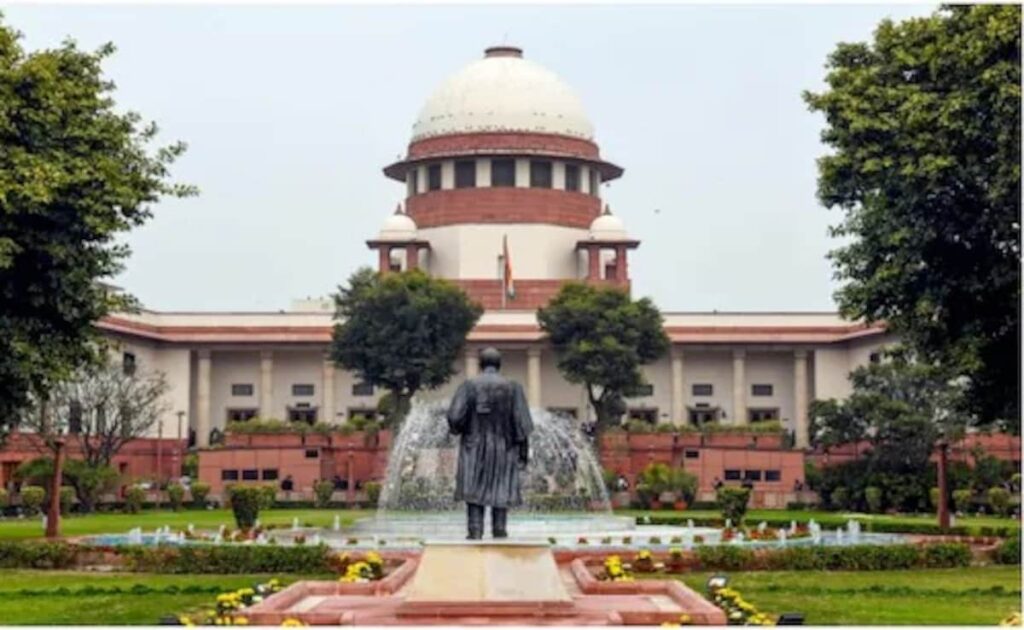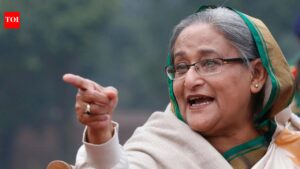“Both Hands Intact” Guideline For Pursuing MBBS Reeks Of Ableism: Court


New Delhi:
The Supreme Court on Friday said the National Medical Commission (NMC) guidelines requiring students with specified disabilities to have “both hands intact” to pursue MBBS course was “completely antithetical” and reeked of “ableism”.
A bench of Justices B R Gavai and K V Viswanathan observed the guidelines prescribed “both hands intact, with intact sensations, sufficient strength and range of motion” to be essential for eligibility in the medical course.
“This prescription of ‘both hands intact…’ is completely antithetical to Article 41 of the Constitution; the principles enshrined in the United Nations Convention on the Rights of Persons with Disabilities and the salutary provisions of the RPwD Act (Rights of Persons with Disabilities Act, 2016),” said the bench.
The court went on to add, “It also indicates a classification which is overbroad and glorifies ‘ableism’. It propagates that persons with typical abilities and with faculties similar to what the majority may have or somehow superior.” This was precisely what the Directive Principles of State Policy, the United Nations Convention and the 2016 Act abhor, it added.
The top court referred to its verdict passed in October last year which asked the NMC to issue revised regulations and guidelines in supersession of the guidelines of May 13, 2019 with regard to admission of students with specified disabilities under the Act with respect to MBBS course.
It said pursuant to the verdict, the NMC assured the top court in another matter that it would constitute a new committee of domain experts to comply with the judgement.
“We direct this matter to be posted on March 3, 2025 to consider whether the National Medical Commission has formulated the revised guidelines in accordance with the judgments of this court…,” it said.
The bench in the meantime directed the NMC to file an affidavit explaining the current status.
The top court delivered its verdict on an appeal against a September 2024 order of the Punjab and Haryana High Court, which rejected the claim of a disabled aspirant and upheld the denial of his admission to MBBS course.
The top court said it had on December 12, 2024 ordered the appellant’s admission in the Government Medical College, Sirohi, Rajasthan against a seat reserved for Persons with Disabilities (PwD) (OBC) category.
The bench gave its reasoning in the judgement delivered on Friday.
It referred to the guidelines over the admission of students with “specified disabilities” under the 2016 Act in MBBS course which constituted appendix H-1 to the Graduate Medical Education Regulations (Amendment), 2019, notified on May 13, 2019.
The bench noted while the appellant’s disability of 58 per cent rendered him eligible for the course under the PwD quota, the requirement to have the requirement of having “both hands intact, with intact sensations, sufficient strength and range of motion” made him ineligible.
“The ‘both hands intact…’ prescription has no sanctity in law as it does not admit of a functional assessment of the individual candidate, a matter which is so fundamental in protecting the rights of persons with disabilities,” it held.
Such a prescription, said the bench, reeked of ableism and had no place in a statutory regulation.
“In fact, it has the effect of denuding the rights guaranteed under the Constitution and the RPwD Act and makes a mockery of the principle of reasonable accommodation,” it said.
The bench observed at the time of hearing the matter in November last year, the top court asked the Director of the All India Institute of Medical Sciences, New Delhi, to constitute a committee to examine whether the disability suffered by the petitioner would come in the way of his pursuing medical studies.
The bench said of the six members of the committee, five said they were unable to declare the appellant fit to join the MBBS course and the current NMC guidelines needed revision.
However, one of the members was said to have held that the appellant could successfully navigate MBBS course with clinical accommodations and assistive technologies.
The bench rejected the report of the five members of the board and accepted the report of the other member while confirming his admission.
(Except for the headline, this story has not been edited by NDTV staff and is published from a syndicated feed.)






